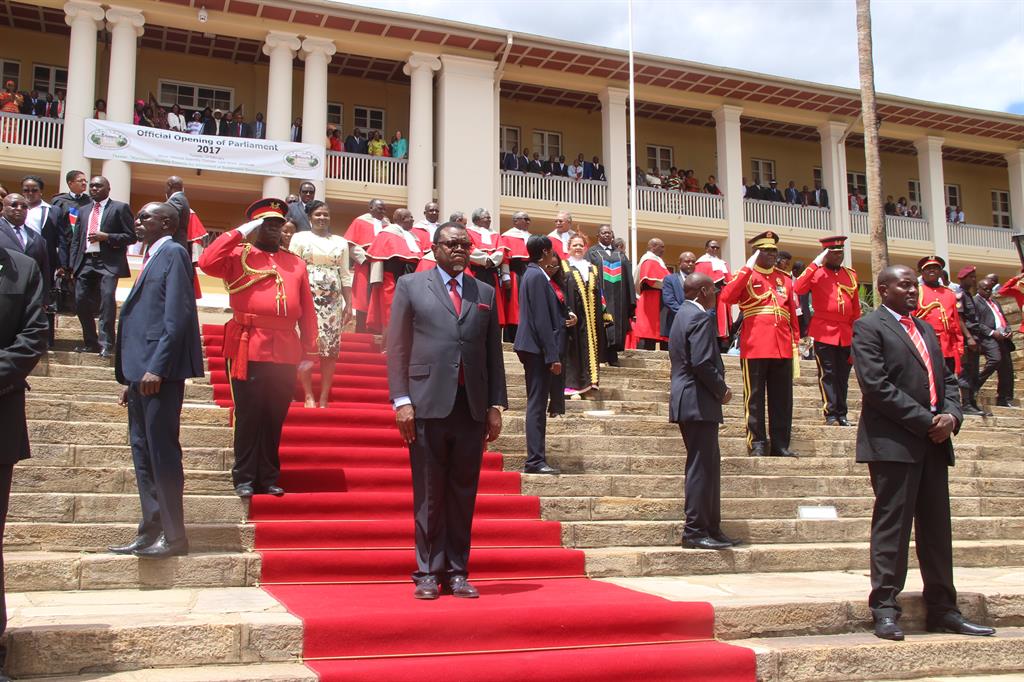Peer review progress taking shape
Just over a year after Namibia officially joined the African Peer Review Mechanism (APRM) dozens of civil society organisations and stakeholders met for two days in Windhoek last week to help navigate Namibia's role as a member of the APRM.
The two day training workshop was facilitated and organised by the South African Institute of International Affairs (SAIIA), the Institute for Public Policy Research (IPPR) and the Friedrich Ebert Stiftung (FES). Deputy minister of international relations Christine
//Hoebes described the ARPM as “one of the most important initiatives” for good governance in Africa, and noted that the APRM's “unique feature is that it was developed and is being implemented by Africans themselves”.
She pointed out that Africa is the only continent that has voluntarily agreed to go into an extensive governance assessment of its states. The IPPR's Graham Hopwood explained that the workshop was aimed at training civil society representatives on the APRM and what it means for Namibia.
“We plan to write a civil society report before the end of the year focusing on issues we think the APRM process here should address,” Hopwood said. He emphasised that the input of civil society to the APRM process is crucial and the workshop's goal was to inform civil society partners and allow them to be ready to give such input. Delegates at the workshop included civil society in addition to members of the APRM Secretariat, the Pan African Parliament and Zambian civil society. Heiner Naumann of the FES called on African states to monitor each other's progress towards good governance and give recommendations where necessary. Naumann further stated that the APRM process is designed to assist participating countries in order to develop and promote the adoption of laws, policies and practices that lead to political stability, healthy economic growth, sustainable development and continental economic integration.
Thirty-six African states, including Namibia, have voluntarily joined the review mechanism to date. Half of these countries have already subjected themselves to the complicated procedure of letting the various pillars of government be reviewed by other member states.
//Hoebes said the mutual review mechanism has progressed significantly since its inception in 2003 and has opened up space for policy debate, fostered a culture of national dialogue between citizens and their governments.
JANA-MARI SMITH
The two day training workshop was facilitated and organised by the South African Institute of International Affairs (SAIIA), the Institute for Public Policy Research (IPPR) and the Friedrich Ebert Stiftung (FES). Deputy minister of international relations Christine
//Hoebes described the ARPM as “one of the most important initiatives” for good governance in Africa, and noted that the APRM's “unique feature is that it was developed and is being implemented by Africans themselves”.
She pointed out that Africa is the only continent that has voluntarily agreed to go into an extensive governance assessment of its states. The IPPR's Graham Hopwood explained that the workshop was aimed at training civil society representatives on the APRM and what it means for Namibia.
“We plan to write a civil society report before the end of the year focusing on issues we think the APRM process here should address,” Hopwood said. He emphasised that the input of civil society to the APRM process is crucial and the workshop's goal was to inform civil society partners and allow them to be ready to give such input. Delegates at the workshop included civil society in addition to members of the APRM Secretariat, the Pan African Parliament and Zambian civil society. Heiner Naumann of the FES called on African states to monitor each other's progress towards good governance and give recommendations where necessary. Naumann further stated that the APRM process is designed to assist participating countries in order to develop and promote the adoption of laws, policies and practices that lead to political stability, healthy economic growth, sustainable development and continental economic integration.
Thirty-six African states, including Namibia, have voluntarily joined the review mechanism to date. Half of these countries have already subjected themselves to the complicated procedure of letting the various pillars of government be reviewed by other member states.
//Hoebes said the mutual review mechanism has progressed significantly since its inception in 2003 and has opened up space for policy debate, fostered a culture of national dialogue between citizens and their governments.
JANA-MARI SMITH





Comments
Namibian Sun
No comments have been left on this article